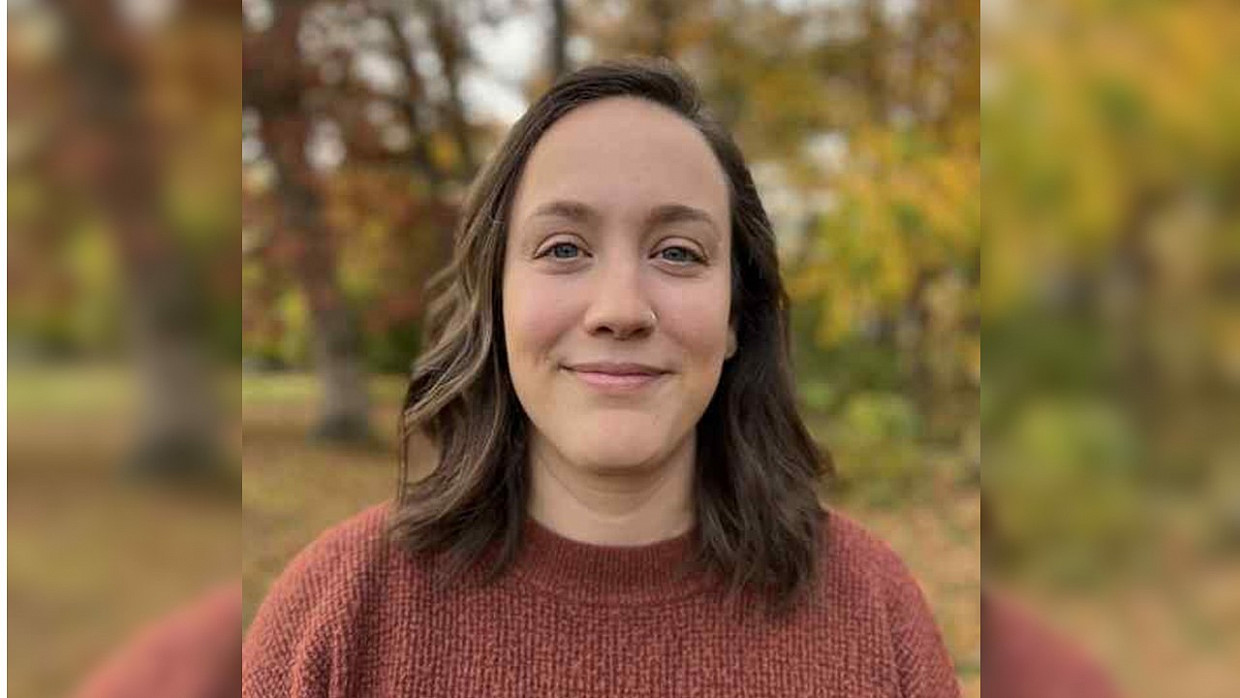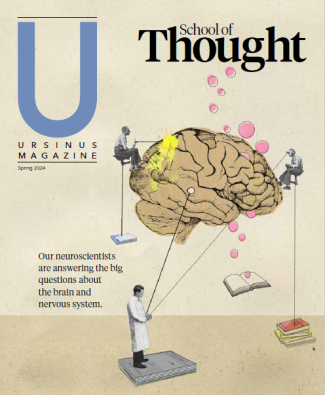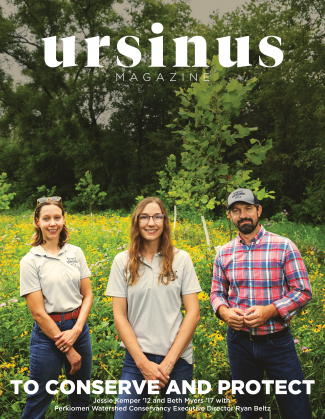
Wellness Center (Re)introduces Initiative to Support Students’ Mental Health
Let’s Talk is a free and confidential program that provides easy access to informal drop-in consultations with counselors from the wellness center.
As interim director of counseling and wellness, Danielle Wagner, LCSW, provides one-on-one therapy to students, and offers crisis consulting to faculty and staff so they can better support their students. She also works with the office of disability and access to manage the therapy dog group that visits campus weekly. Recently, she and the wellness center staff having been offering an additional pathway to support that’s simply titled, Let’s Talk.
The initiative originated at Cornell University in 2006, and was first introduced at Ursinus by the recommendation of Executive Director of Counseling and Wellness Lauren Finnegan Martin at the start of the spring semester in 2020 to help impact the wellness of students on campus. After two months, it was paused due to the COVID-19 pandemic, but it has been reinstated this semester due, in part, to student requests for walk-in wellness opportunities.
For three hours each week, Wagner, as well as Dr. Suzanne Chong and Dr. Bao Hanh Tran—both staff psychologists—set up a remote office of sorts in an academic building, typically Olin Hall or Pfahler Hall, for walk-in visits. “This program bridges the gap between those students who feel comfortable emailing and making therapy appointments and coming over to the wellness center versus students who might not feel comfortable coming to the wellness center or might not feel like they need therapy,” said Wagner.
That said, Wagner is quick to add that Let’s Talk is not therapy. “It’s not a substitute for mental health treatment. But it is a way for students to feel like they can get connected to somebody or run something by somebody in an informal way.” It’s done in a way that has very few barriers: There is no paperwork, no payment required, and no commitment required. “Students don’t have to begin therapy after speaking with us, although many students want to.”
Conversations typically last 15 to 20 minutes, so the wait—if there is one—is usually brief. “In theory we can see four students per hour, but they usually don’t come at that rate. Sometimes we don’t have any, which is okay; we just want to be there and be available,” said Wagner.
The program is intended to supplement the wellness center’s daily crisis hour, which is available from 2 to 3 p.m. “We want to reserve that time for crises where we might need to support a student who may need a higher level of care. Let’s Talk was always intended to be kind of an extension of formal mental health services where barriers are low and students don’t have to feel like they need to reach a certain level of distress to be justified in coming.” (For after-hours emergencies, students can call Campus Safety at 610-409-3333.)
The staff at the wellness center hopes that, in offering the program three times each week, it becomes a normalized option that students know exists. It’s just one more way the college is committing to the health and wellness of students by way of the Okanagan Charter.
“Let’s Talk brings visibility to that commitment,” said Wagner. “The hope is that each student feels like there is a place they can go, whether it’s Let’s Talk or the wellness center, or their coach, or their professor. This just adds to the dimensions of options and opportunities and support that we’re offering.”
Let’s Talk is offered:
Mondays 11 a.m. to noon in Olin 104
Tuesdays 3 to 4 p.m. in Pfahler 245
Wednesdays 11 a.m. to noon in Olin 217


